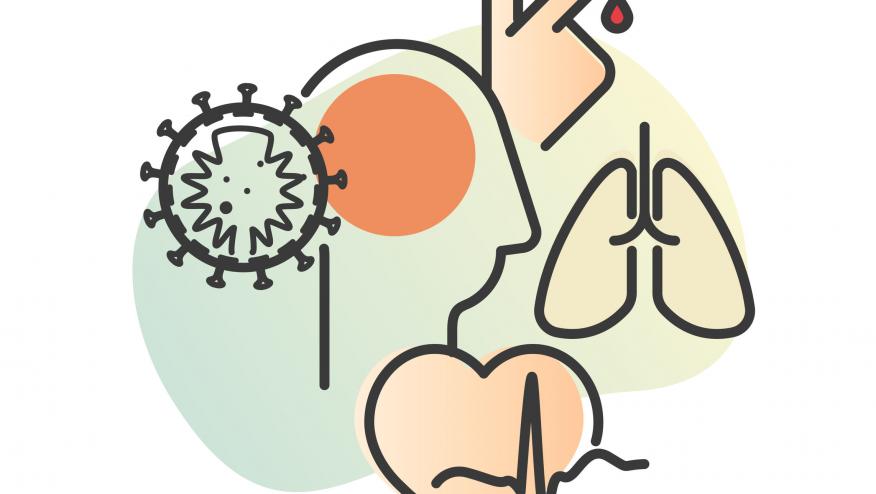No Special Heart Risk With JAK Inhibitors, Study Finds Save

Patients taking Janus kinase (JAK) inhibitors for rheumatoid arthritis experienced similar cardiovascular outcomes as those using the tumor necrosis factor (TNF) blocker adalimumab (Humira), analysis of French national registry data indicated.
After adjustment for potential confounding variables -- the most prominent being greater use of methotrexate in adalimumab users -- the hazard ratio for major adverse cardiovascular events (MACE) with JAK inhibitors versus adalimumab was 1.0 (95% CI 0.7-1.5), according to Lea Hoisnard, MD, of Assistance Publique-Hôpitaux de Paris in France, and colleagues.
Rates of venous thromboembolism (VTE) were also similar (adjusted HR 1.1, 95% CI 0.7-1.6) in the study of nearly 16,000 rheumatoid arthritis patients, the researchers reported in Annals of the Rheumatic Diseases.
The findings offer "reassuring data regarding the risk of MACEs and VTEs" with JAK inhibitors in comparison with adalimumab, the most popular step-up treatment for rheumatoid arthritis, Hoisnard and colleagues wrote.
Some previous studies had found increased rates of VTE and other cardiovascular events with JAK inhibitor use -- enough that labels for JAK inhibitors such as tofacitinib (Xeljanz) and baricitinib (Olumiant) now sport boxed warnings about these effects and arthritis medications in the JAK inhibitor class are restricted to certain patients who have not responded or cannot tolerate one or more TNF blockers.
In January, ORAL Surveillance, an FDA-required safety study on tofacitinib, yielded a numerically greater MACE risk with JAK inhibitors that failed to reach statistical significance but nevertheless did not allow tofacitinib to meet noninferiority against adalimumab (Humira) or etanercept (Enbrel).
This uncertainty led Hoisnard and colleagues to examine French national health records for further insights.
The researchers identified 8,481 rheumatoid arthritis patients who started on tofacitinib or baricitinib from July 2017 to May 2021 and matched them with 7,354 peers who initiated adalimumab during this period. Median follow-up was 440 days for the JAK inhibitors versus 344 days for adalimumab.
Patients were typical of those adding a targeted immunomodulator, with mean age of 59 years in the JAK inhibitor cohort and 55 among adalimumab users; about three-quarters of both groups were women. Most patients in both groups had at least one risk factor for cardiovascular events.
More of the adalimumab group previously used conventional anti-rheumatic drugs such as methotrexate (58% vs 51%), and the methotrexate use was still more common among these patients at enrollment (21% vs 11%). More of the JAK inhibitor group had previously used a biologic drug (67% vs 39%).
MACE was defined as the composite of myocardial infarction and ischemic stroke. When considering a more expansive list of cardiovascular conditions including transient ischemic attack and unstable angina, the investigators observed a numerical disadvantage for JAK inhibitor users that was not significant upon adjustment for methotrexate use and other covariates.
There was, however, a hint that older patients with cardiovascular risk factors did face increased risk with JAK inhibitors: those 50 years and older with at least one standard risk factor were 50% more likely than adalimumab users to experience VTE, though this did not reach statistical significance and did not apply to MACE.
Hoisnard and colleagues noted that the study was underpowered for these analyses, as only a few dozen MACE and VTE events occurred in these subgroups.
Other limitations to the study included lack of data on important variables such as family history and relatively short follow-up. It's also possible that patients' actual drug use was not reflected accurately in the registry's reimbursement data, Hoisnard and colleagues observed.









If you are a health practitioner, you may Login/Register to comment.
Due to the nature of these comment forums, only health practitioners are allowed to comment at this time.